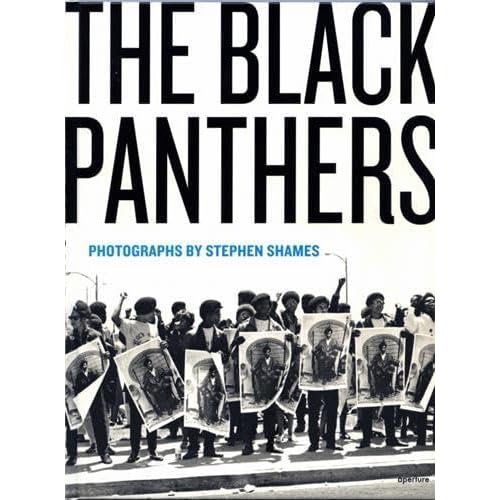The Black Panthers

...a few semesters ago, I took a class on the topics of Black Nationalism. The professor, Dr. Charles E. Jones (who?, Chuck Jones, who? Chuck Jones!) mentioned that he was doing research on the Black Panther Party for self defense...it seems as though there are lots of information on the party that's interestingly unknown to many. (as exemplified by Dr. Jones, work done in responsibility for black prostitutes and correcting police brutality).
Finally, the text is finished, and though I'm done with my African-American studies requirements, I can't wait to recieve my copy in the mail. (actually, it's for my grandaddy for Christmas...he likes stuff like this...and he won't mind me holding on to it for a few weeks ;-)
Anywho, I told a few of you guys that I would provide the citation once Dr. Jones was finished. Here's one for the land, the skin, and the blood folks. Check it out when you get a chance...( by Dr. Jones, Mr. Bobby Seale himself, and another brother, Mr. Stephen Shames)...here's a small review from Amazon.com
From the world’s largest archive of Black Panther images, a nuanced portrait of a dynamic movement and a tumultuous time. In 1966, as the largely nonviolent Civil Rights movement swept through America, Huey P. Newton and Bobby Seale founded the legendary Black Panther Party in Oakland, California. Revered by some and vilified by others, the party burst onto the scene with a militant vision for social change and the empowerment of African-Americans. Its methods were so controversial and polarizing that in 1968, FBI head J. Edgar Hoover described the organization as the country’s greatest threat to internal security. During the height of the movement, from 1967 to 1973, photographer Stephen Shames had unprecedented access to the organization. He captured not only its public face--street demonstrations, protests and militant armed posturing--but also life behind the scenes, from private Party meetings to Bobby Seale at work on his Oakland mayoral campaign. Shames was prolific and his archive of Panther images is the largest in the world, presenting an uncommonly nuanced portrait of this dynamic social movement. Released on the occasion of the Party’s fortieth anniversary, this illuminating publication gathers an astonishing collection of never-before-published images, offering an electrifying visual history. Panther newspapers, posters and other ephemera help convey the ethos of the Panthers and of a transformative period of social upheaval for the whole nation.
Labels: black folks, social issues




0 Comments:
Post a Comment
Subscribe to Post Comments [Atom]
<< Home